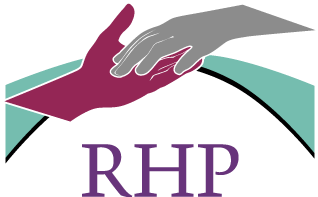Narcotic / Opiate Dependence
Nearly two million Americans suffer from addiction to narcotics, which include substances ranging from heroin to prescription painkillers such as Vicodin, Percocet, and Oxycontin. These drugs are responsible for the majority of overdose deaths in the U.S. today.
The classic path to opiate addiction starts with a long-term course of pain pills (narcotics / opiates or opioids) prescribed by a doctor for an acute injury or for a chronic pain condition. Taking opioid medications for more than a few days increases your risk of long-term use, which increases your risk of addiction.
Anyone who takes opioids is at risk of developing an opiate addiction. Opiates will not only relieve pain but also create euphoria. People who regularly abuse prescription opioids build up a tolerance to the euphoric effects of these medications, leading many of them to increase the dosage taken or switch to more potent drugs such as heroin or fentanyl.
Opiate Addiction
Opiate addiction is a chronic, neurological disease that results from the use of opiates and leads to psychological, environmental, and physical factors that are characterized by an impaired control over the drug, impaired behavior revolving around the use of the drug or a craving for the drug despite known consequences of drug use.
Opiates affects brain receptors that become dysfunctional. And the opiate addiction becomes a disease of the brain biochemistry and not a willful misconduct. Long-term use leads to a physical dependence, which causes withdrawal. Withdrawal is a physical illness that results when an individual stops using opiates. Treatment is often needed to recover from opiate addiction because it’s almost impossible to successfully overcome this chemical dependence on your own.
The patient will need guidance to understand the reasons for their behavior, to learn alternatives that can help change that behavior, and to be guided into a new and healthy lifestyle.
Effective drug addiction treatment educates you on how to functionally cope with your everyday issues without returning to drugs.
A successful recovery depends on active participation rather than an expectation of “getting fixed” by your doctor.
The effectiveness of your drug rehabilitation depends on many factors:
- How invested and motivated you are in changing.
- How much positive social and family support you have.
- Whether you have any psychological issues that will need to be corrected.
- Who is conducting the treatment. A professional treatment program run by professional treatment providers skilled in treating substance use disorders is paramount to the success of your recovery.
Treatment Options for Opiate Addiction
Our medical doctors take a multi-faceted approach to the treatment of opiate addiction:
- Proven pharmacological treatment. Medication is used for the relief of physical withdrawal symptoms and reduction of cravings from opioids and alcohol.
While a couple of decades ago, Methadone was the only successful available treatment for opiate addiction, today treatment options are multiple and Suboxone leads the way, preventing withdrawal symptoms and suppressing cravings for narcotics. Naltrexone and Vivitrol are viable alternative treatment as well as the most recent addition: monthly injection Sublocade - Psychosocial treatment to help patients develop techniques to achieve and sustain their sobriety
- Cognitive Behavioral Therapy is provided. CBT is like a course on how to better cope with our emotions born from our automatic thoughts. The emphasis is on learning and practicing new skills
Our qualified and reputable providers also will adjust each treatment to the patient’s needs because there is no one-size-fits-all approach.








